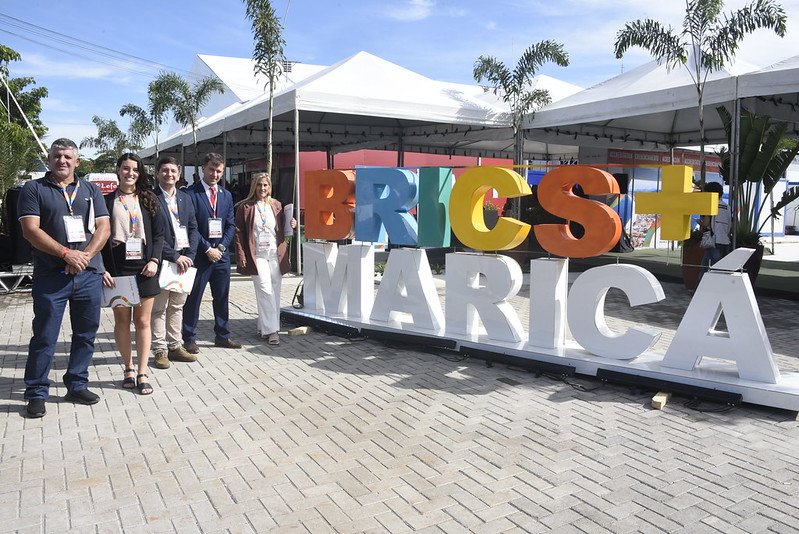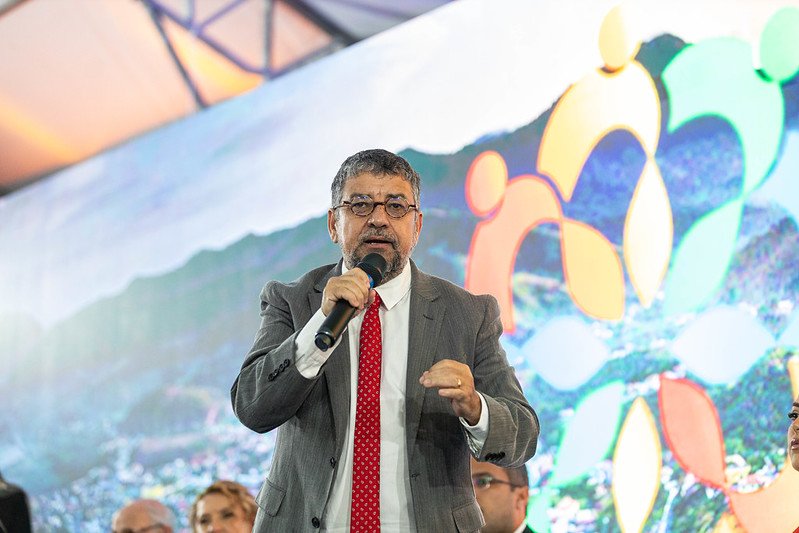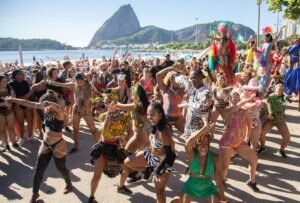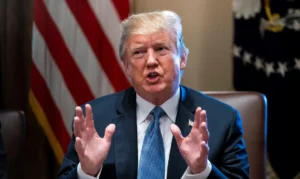
“What was taken by force can only be recovered by force,” declared Egyptian leader Nasser in 1956, after seizing the Suez Canal. Nasser’s advice remains relevant today. Countries of the Global South no longer need to reclaim canals, although they might need to defend one—the Panama Canal—but they do need to unite to confront an imperialism increasingly corrupted by wars, sanctions, tariffs, and genocides.
The BRICS nations do not lack strength. China and Russia, together, are militarily unbeatable, and the entire bloc, including Brazil, combines economic, agricultural, industrial, and technological power that emerging nations have never had in the past. In the small and combative Maricá, a city of about 197,000 inhabitants located 47 km from the capital of Rio de Janeiro state, a few more bricks were laid for the construction of a new world.
“We are living through a historic moment in which an old world order, based on hegemony imposed by force, war, and selfishness, is coming to an end,” declared Mayor Washington Quaquá during the first Assembly of the BRICS+ Association of Cities and Municipalities, held from May 26 to 28, 2025, at the Arena da Barra in Maricá.

The BRICS, originally formed by Brazil, Russia, India, China, and South Africa, has expanded significantly in recent years. In 2024, the bloc incorporated six new members: Saudi Arabia, Egypt, the United Arab Emirates, Ethiopia, Iran, and Indonesia. Furthermore, in January 2025, nine partner countries were announced: Belarus, Bolivia, Kazakhstan, Cuba, Malaysia, Nigeria, Thailand, Uganda, and Uzbekistan. Today, with eleven full member countries and nine partners, the group represents over 40% of the world’s population and approximately 37% of global GDP. Brazil’s commitment to a multipolar world was reaffirmed by President Luiz Inácio Lula da Silva during his videoconference speech at the 16th BRICS Summit, held in Kazan, Russia, on October 23, 2024.

Lula declared: “During Brazil’s presidency of BRICS, we want to reaffirm the bloc’s vocation in the fight for a multipolar world and for less asymmetrical relations between countries.” The president also advocated for BRICS to be a central actor in building a more inclusive and sustainable international governance, emphasizing the importance of strengthening South-South cooperation and ensuring that the voice of governments prevails over private interests.
The event in Maricá, which served as preparation for the BRICS Summit in Rio de Janeiro (scheduled for July 6 and 7 at the Museum of Modern Art), brought together municipal leaders from 26 countries. Among the authorities present were Rio’s Mayor Eduardo Paes, president of the National Front of Mayors, and Ilsur Metshin, Mayor of Kazan (Russia), who had chaired the association since its founding in 2024.
The assembly coincided with Quaquá’s unanimous election to the presidency of the BRICS+ Association of Cities and Municipalities. He already commanded the Brazilian Association of Municipalities (ABM) and now leads an association linked to a bloc that represents 40% of the world economy and almost half of the global population.
According to International Monetary Fund projections released in May 2025, BRICS GDP is expected to grow by 3.4% this year, significantly surpassing the world average of 2.8%. The countries leading this growth are Ethiopia (6.6%), India (6.2%), and Indonesia (4.7%), according to Agencia Gov data.
Brazil emerges with unprecedented strength in this new scenario. It has never been so strengthened in foreign trade. Its international reserves are reaching historical levels. Its democratic institutions have set an example to the world of resistance against destabilizing movements. It’s no coincidence that this meeting took place in Maricá, the rebellious jewel of Brazilian municipalities. With an annual budget of R$7 billion for 2025—higher than that of four state capitals—and oil royalties expected to reach R$4 billion this year, the city implements revolutionary policies in various fields, including urban mobility, popular credit, and education.
The event reinforces that political agents should not be mere technical administrators. Quaquá exemplifies the manager who understands his political dimension. He represents not only administrative interests but also the political aspirations of citizens.
Nasser died in 1970, but his message lives on; Egypt is now part of BRICS. If he were alive, Nasser would recognize in BRICS+ the continuation of his struggle: resistance against imperial domination and the construction of sovereign alternatives. BRICS is more important than ever at a time when the American government is attacking international trade. The entire world is looking to BRICS with hope that the bloc can bring some solutions to a planet in upheaval.
It’s a good time to remember another historical leader in the anti-imperialist struggle: “Let us build together a world where all peoples can live in peace and dignity. This is the first intercontinental conference of colored peoples in the history of humanity. We are now free, sovereign, and independent. We are, once again, masters in our own house,” concluded Sukarno, President of Indonesia, at the end of the famous Bandung Conference in 1955, which initiated a movement similar to today’s BRICS.
Photos: Maricá City Hall.








